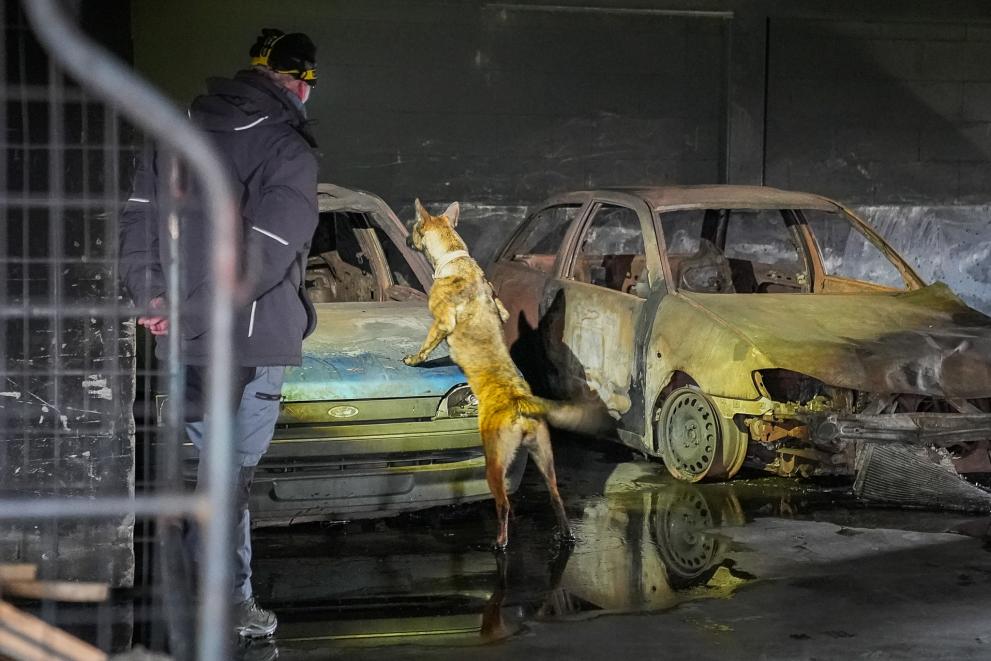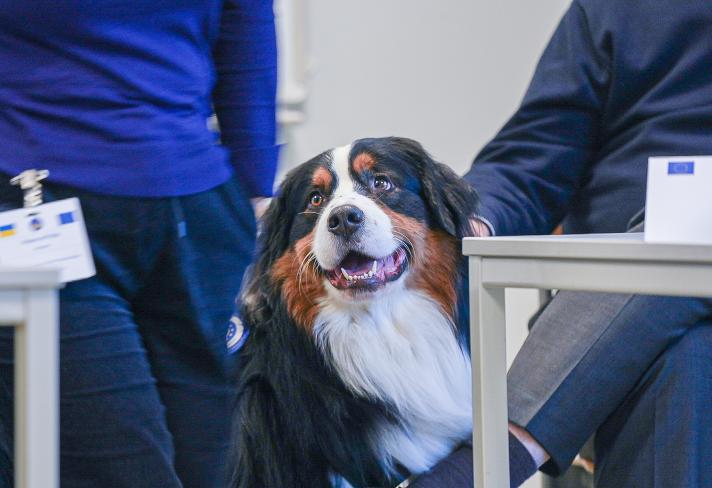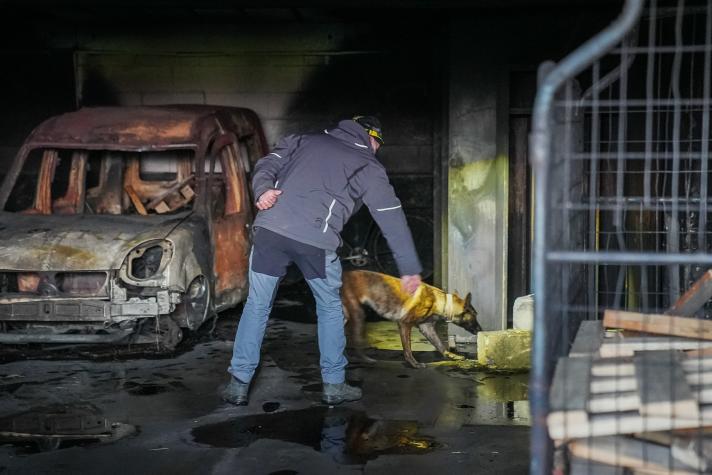
Ukrainian authorities estimate that 30% of Ukraine’s territory is contaminated with mines and unexploded munitions. As part of EU action to aid Ukraine, the European Commission created a project to train and donate fifty explosive and mine detection dogs to Ukrainian authorities. This is a European project lead by Directorate General for Migration and Home Affairs (DG HOME) and Foreign Policy Instrument (FPI) working together with Member States police and military services, US authorities and Ukrainian services (Armed Forces, State Emergency and Border Guard).
Since the beginning of October 2022, the first nine dogs have been undergoing training which is expected to be completed mid-February 2023. These are very agile, medium sized dogs, such as Dutch or Belgian shepherds and other dog breeds used for such missions. After the final training, the dogs will be paired with a specific handler and a formal ceremony will take place in February. Then the dogs will be sent to Ukraine to help clear the agricultural fields, cities and country side from all kinds of explosives.
These dogs are an important contribution to help rebuild Ukraine as they are trained to search for explosives inside and outside buildings (hospitals, schools, factories), in vehicles and buildings that have been bombed and burned, as well as in agricultural fields. The process of securing the fields by detection dogs will be supported by metal detection drones provided by the EU which will help to pinpoint metallic areas (potential rockets and ammunition) which will then be searched by the EU detection dogs.
The estimated cost for the 50 detection dogs is approximately € 2 million. DG HOME is leading and coordinating the project with close support of the dog trainers from across the EU, as part of RECCEDD project. The trainers include retired and active duty police officers from Austria, Belgium, Finland, Luxembourg and Malta who have broad experience in training mine detection and explosive detection dogs for securing the public spaces. Some of them have up to 30 years of experience.
The EU training programme for these dogs has been developed by the DG HOME with the support of law enforcement members of the EU Explosive Detection Dog Working Group. In total the EU will finance the training and logistics of 50 mine detection dogs which will be pre-trained in Belgium, paired with the Ukrainian dog handlers during a special training session and then handed over to Ukrainian authorities.
Details
- Publication date
- 15 December 2022
- Author
- Directorate-General for Migration and Home Affairs


